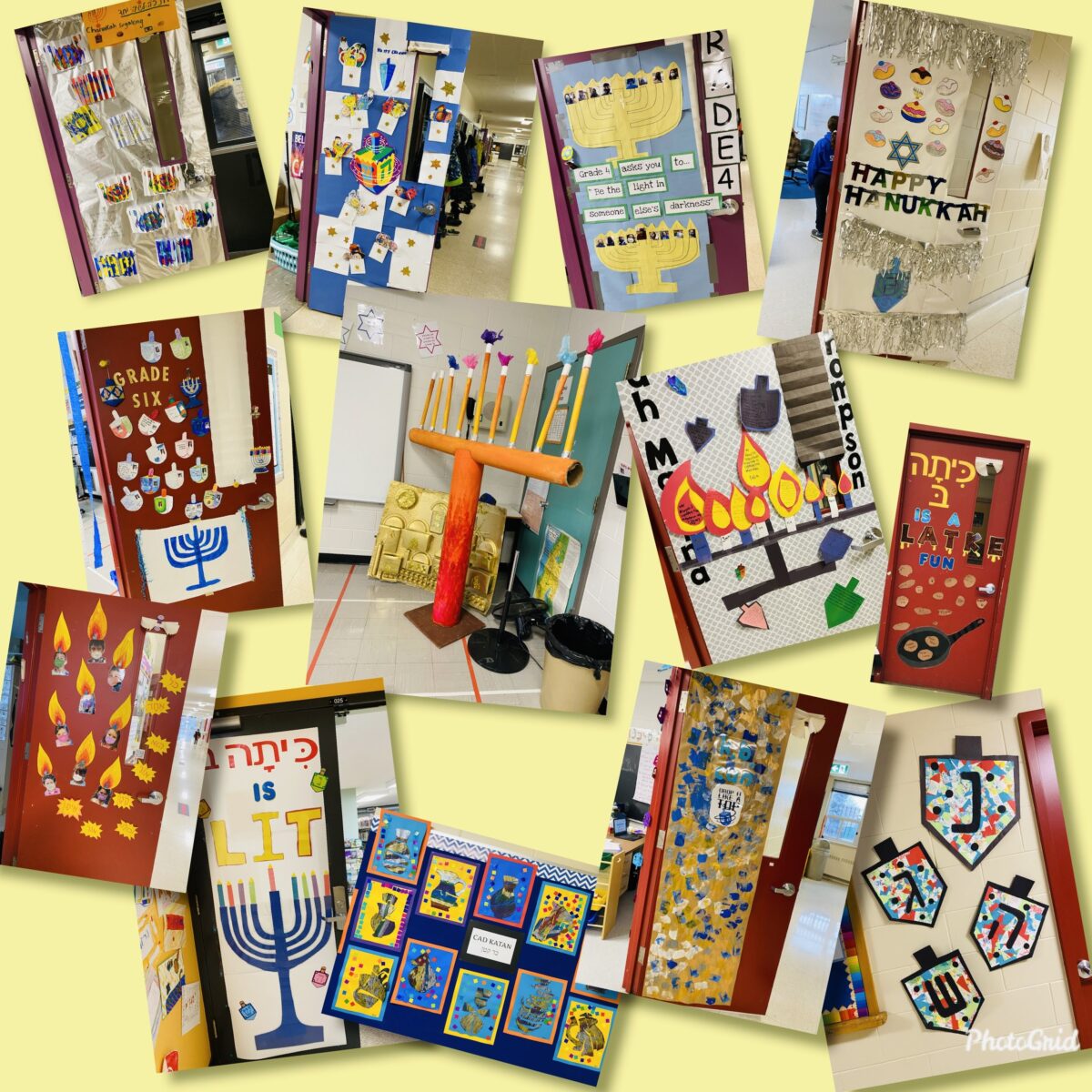I guess if the High Holidays came early this year that all the other ones probably will as well? So I guess I can’t be surprised that Chanukah begins this Sunday evening! As part of my blog post last year, I wrote:
Instead of a public reading, we communicate the story of Chanukah silently, with the act of lighting candles at the window so that Jews and non-Jews alike recognize our celebration of the miracles that occurred.
I found a pedagogical “a-ha moment” in my re-reading and it isn’t so much in the “silence” as it is the “act”. Why? Well, in the case of candles, it is an action that anyone can take; it is not so ritualistically complex that only the most knowledgeable amongst us can perform it. It is an action performed publicly and in the home. And it is an act through which the meaning can be found through the doing. It is truly an act of “na’aseh v’nishma“.
This quotation from the Torah (Exodus 24:7) has been interpreted in many ways in Jewish tradition. The meaning which speaks most deeply to me is: “We will do and then we will understand.” This meaning comes from a rabbinic story (also called “midrash”) that explains Israel’s unconditional love for the Torah. The midrash is as follows:
When the Children of Israel were offered the Torah they enthusiastically accepted the prescriptive mitzvot (commandments) as God’s gift. Israel collectively proclaimed the words “na’aseh v’nishma“, “we will do mitzvot and then we will understand them”. Judaism places an emphasis on performance and understanding spirituality, values, community, and the self through deed.
Simply put, we learn best by doing.
This idea has powerfully stimulated my own Jewish journey and informs my work as a Jewish educator. I think there are two major implications from this: One, regardless of the institution, we have a responsibility to provide access to informal Jewish educational programs to our young people. Two, our formal educational institutions can stand to learn from what makes informal work. [This is precisely why in our search for a new “Head of Jewish Studies” we have expanded the position to include “Jewish Life” – our ideal person will have an informal and/or camping background in addition to their formal education and experiences.] Namely, I believe strongly in education that is active, interactive, dynamic, and most importantly experiential. It is one thing to teach Judaism; it is something more powerful to teach people how to live Judaism.
It is one thing to teach social action; it is identity-forming for our middle school students to go out into the world each Friday and in lieu of their Jewish Studies Curriculum make the world a better place by doing social action. That’s why we are working so hard to launch our new “Mitzvah Trip” program this spring, COVID challenges notwithstanding.
It is one thing to read about Israel; it is transformative to visit Israel. That’s why we are exploring how to one day transition our GRAD Trip in Grade 8 from Toronto or NYC to Eretz Yisrael.
And for this time of year?
It is one thing to study Chanukah; it is something infinitely more meaningful to light a menorah in the window, surrounded by family. Hopefully, your family is planning on joining our OJCS Family in this year’s Annual (Virtual) Chanukah Family Program on Thursday, December 7th at 7:00 PM!
Finally, this and each Chanukah, let’s not forget our Jewish values of tzedakah (charity) and kehillah (community). Along with your normal gift-giving, consider donating a night or two of your family’s celebration to local healthcare or other essential workers whose light of courage amplifies and enhances this Holiday of Lights.
Chag urim sameach from my family to yours!

BTW – if you like a playlist and a signature cocktail for your celebrations, why don’t you go ahead and make yourself a Chanukah Gelt Martini and vibe to this playlist:

